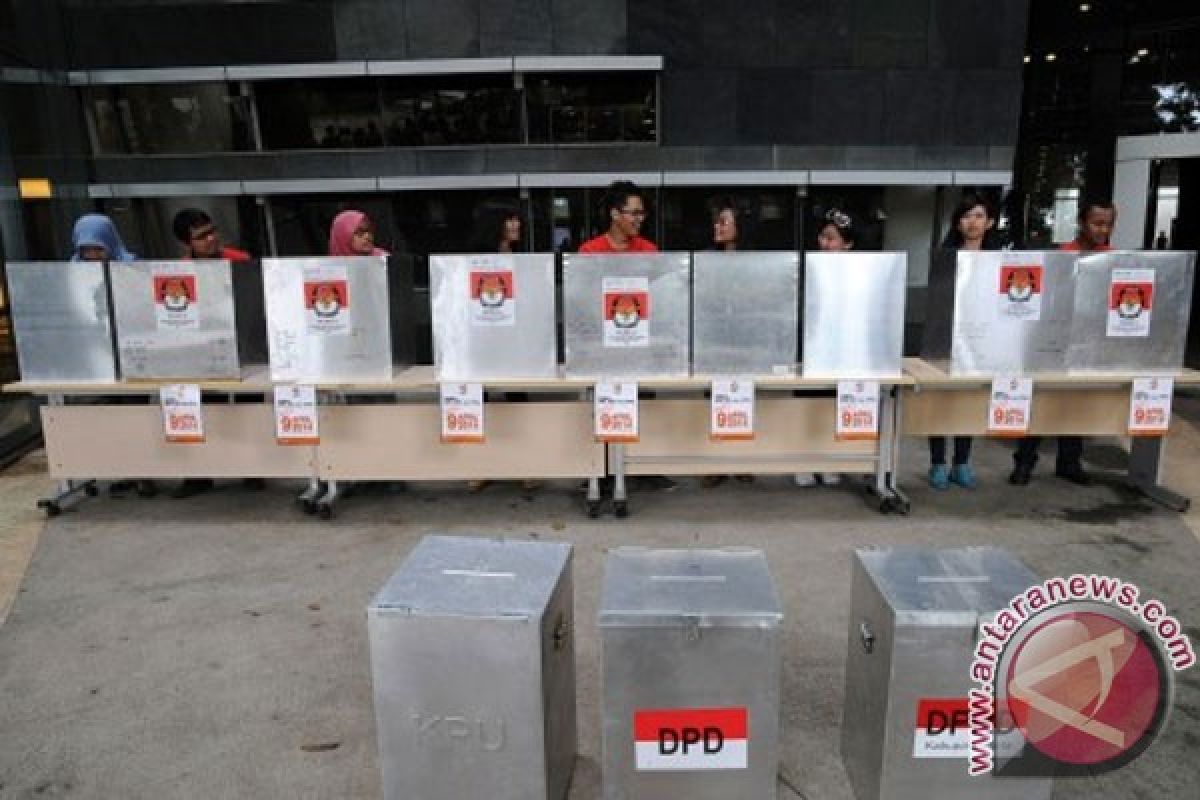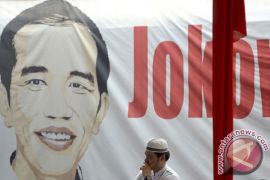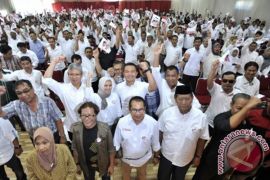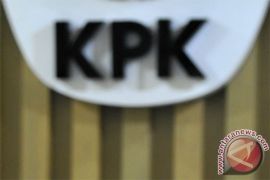On April 9, 2014, Indonesians will cast their ballots to elect local, regional and national legislative members and later in October they will again vote to elect a President and a Vice President.
Twelve national political parties and three local parties in Aceh will take part in the legislative elections on April 9 that will determine their future political role in the country.
These political parties are the Golkar Party, the Indonesia Democratic Party Sruggle (PDIP), the Democrat Party, the United Development Party (PPP), the National Awakening Party (PKB), the Prosperous Justice Party (PKS), the National Mandate Party (PAN), the Nasional Demokrat (Nasdem), the Moon and Star Party (PBB), the Peoples Conscience Party (Hanura), the Great Indonesia Movement Party (Gerindra), the Justice and Indonesian Unity (PKPI), the Peaceful Aceh Party, the Aceh National Party and the Aceh Party.
Some of these political parties are expected to breach the national parliamentary threshold set at 3.5 percent of votes, while wont.
Sugeng Saryadi Syndicate, a survey institute, has predicted that six political parties will fail to meet the parliamentary threshold. These are Nasdem, PKS, PAN, Hanura, PBB and PKPI.
The Institutes Executive Director, Y Ari Nurcahyo further stated that PKSs vote share would drop drastically due to the involvement of its former President, Luthfi Hasan Ishaq, in a corruption case.
PAN would not be able to garner enough votes to cross the threshold because it lacked faces like its former Chief, Amien Rais, while Nasdem and Hanura would fail because they still had no widely acceptable and admired politicians to boost their popularity, he pointed out.
Based on the Institutes survey results, only six political parties will most likely have representatives in the House of Representatives (DPR).
Whether this forecast proves to be true is yet to be seen and will only be confirmed by the results of the general elections on April 9.
Meanwhile, PKS Associate Chairman Indra said the surveys results would not become the partys main reference point in its efforts to be part of the top three parties, but will be used as a mere material for analysis.
"In 2009, it was predicted that we would win only 2.2 percent of the votes, but in reality we won 7.9 percent," he pointed out.
Winning a considerable number of votes during the legislative elections is very important for the parties because it will determine whether or not they will be able to nominate their own candidates for the Presidential election later in the year.
Only parties that win a minimum of 20 percent of the seats in the DPR or a minimum of 25 percent of national votes can nominate their own presidential and vice presidential candidates.
Parties that are unable to meet the requirement must form a coalition with other parties to meet the target so that they are able to choose their own candidates for these top positions.
In view of this fact, parties are working hard to boost their electability ahead of the general elections.
PDIPs Chairman of Organizational Affairs in the East Nusa Tenggara regional executive board, Kristo Blasin, said that all the partys cadres had been ordered to bring forward work programs to attract voters sympathy.
"PDIP will always prioritize presenting work programs that party cadres will implement when they later represent people in the legislative or executive branches and would let people take their own decisions with regards to the legislative elections," he stated on Friday.
The partys main programs include fighting for the poors interests and rebuilding a sense of community in line with the partys ideology, he said when asked about the partys strategy to win votes during the next legislative elections.
He further stated that party cadres had also been told to prioritize the partys victory and not the victory of the partys legislative candidates.
Golkar Partys Deputy General Chairman Fadel Muhammad pointed out that his party would start working maximally as of January 2014 in its bid to win the legislative elections.
"During a leadership meeting held recently, it was reported that the party's engines had already been put in motion and would be accelerated soon," he said.
He added that party leaders from the regional to central levels had moved to the fields to boost the partys electability, including the partys General Chairman Aburizal Bakrie.
Fadel said he was satisfied with the results of the recent survey conducted by the Sugeng Saryadi Syndicate that showed that PDIP and Golkar Partys candidates would be winners in the 2014 general elections.
According to the results of the survey released on Thursday, the PDIP is predicted to win with 17.40 percent votes, followed by the Golkar Party with 17.01 percent votes.
Gerindra follows in the third place with 10.51 percent votes and the Democrat Party in the fourth place with 8.30 percent votes.
Meanwhile, the fifth and sixth places have been bagged by the PKB (4.15 percent votes) and the PPP (3.65 percent votes).
A member of the ruling Democrat Partys Board of Patrons, Hayono Isman, had expressed his optimism early in December that the partys electability would continue to rise.
He said the partys electability had started appreciating up to 10 percent after it plunged to an all-time low of six percent following the involvement of several party cadres in corruption cases.
He believed the partys electability would continue to increase ahead of the general elections, as the party had been able to restore its credibility.
Hayono however called on all cadres not to be complacent as challenges were still expected to arise.
He said he believed the party still had time to further boost its electability through the commitment of President Susilo Bambang Yudhoyono as the partys General Chairman who has upheld the partys smart, civil and clean character.
Marzuki Alie, the Deputy Chairman of the Democrat Partys Supreme Council, noted that his party had already chalked out a strategy to win the next general elections. "So, there is no need to worry about the survey's results," he stated on the sidelines of the WTO Parliamentary Conference in Bali recently.
(INE)
EDITED BY INE
(T.SYS/B/KR-BSR/O001) 16-12-2013 13:14:09
Reporter: Yoseph Hariyadi
Editor: Jafar M Sidik
Copyright © ANTARA 2013








